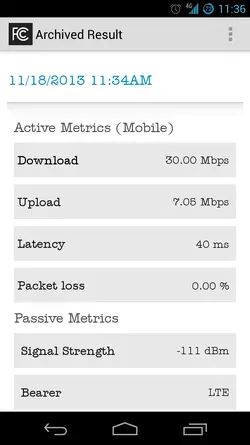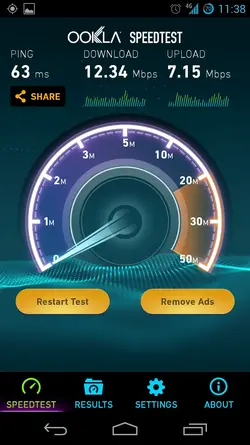
Speaking of the FCC, it looks like they are really doing great things to protect consumer rights lately. Not only are they currently working to make sure phones can be carrier unlocked by consumers, they also just released a cool app which allows consumers to test the data speeds of their smartphone. It is designed to help keep your carrier honest so they can't claim overly inflated download speeds for their network. Not only that, but this app also collects data from everyone who uses the app. This database will eventually cull enough data to show which carriers offer the fastest speeds and most consistent service throughout the country.
This is a similar app to the one they offered in 2011 for fixed broadband services. That one is meant to compare the advertised speeds of ISPs and compare them to what they actually deliver. You can download this new mobile based version from the Google Play Store at the source link below.
Source: Google Play Store - FCC Speed Test App


